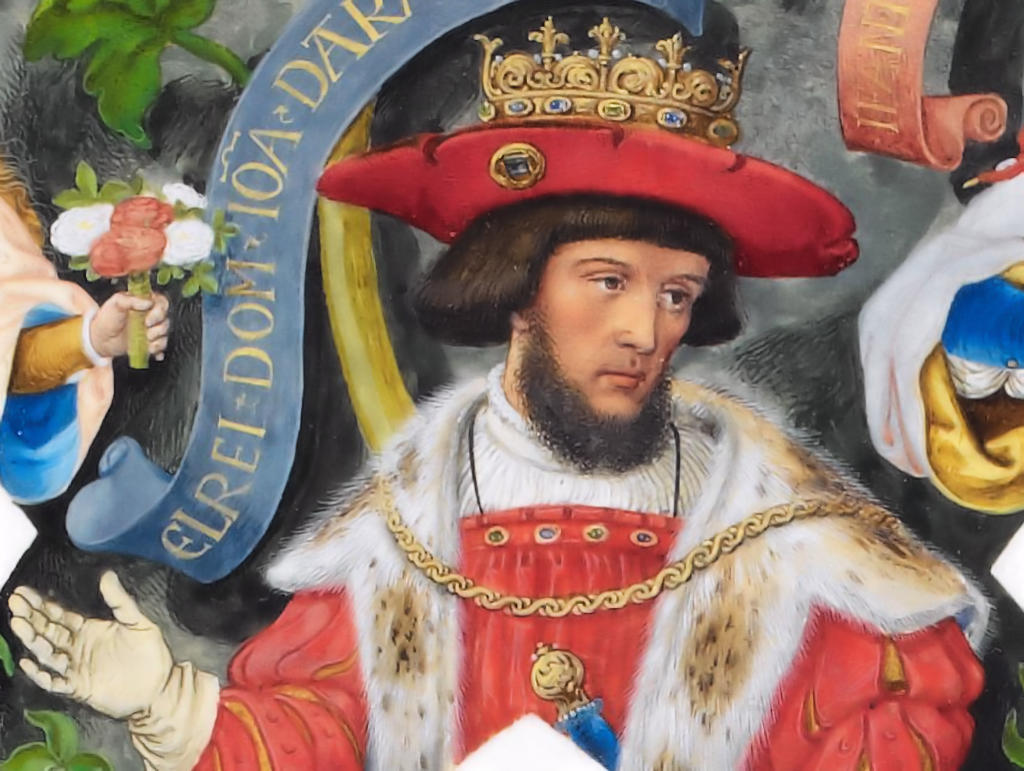King John II of Portugal married his cousin, Eleanor of Viseu on January 22, 1470. Eleanor, also known as Leonor of Viseu, became the queen consort of Portugal and shared a close friendship with John since their childhood. The marriage was significant as it brought together two noble families and solidified alliances. However, their union faced challenges, including the execution of Eleanor's brother-in-law, Fernando II of Braganza, for treason. Despite the difficulties, Queen Eleanor played a crucial role in the kingdom, supporting charitable initiatives and advocating for her brother Manuel's recognition as the heir to the throne. Their marriage lasted until John II's death on October 25, 1495, and Eleanor continued to contribute to Portuguese society as a queen dowager.
As John II assumed full control of the kingdom, he embarked on a series of measures to curtail the power of the Portuguese aristocracy and centralize authority in himself. One notable action was depriving the nobles of their right to administer justice on their estates, which immediately sparked discontent and conspiracies. The Duke of Braganza, a powerful noble and John II's half-second cousin, led the opposition and sought support from Queen Isabella I of Castile.
To neutralize the threat posed by the Duke of Braganza, John II renegotiated an agreement called the "Tercerias de Moura" to ensure the safety of his son, Afonso. After securing his son's well-being, the king moved against the Duke, outlawing the House of Braganza, confiscating their lands, and executing the Duke in Évora. This decisive action sent a clear message that no one could defy the king without severe consequences. John II's reign witnessed a wave of executions, exiles, and confiscations that further solidified the crown's dominance over the realm.
Facing a bankrupt kingdom, John II demonstrated remarkable initiative in solving the economic crisis. He established a regime in which a council of scholars played a vital role. These scholars were selected based on their abilities, talents, and credentials, fostering a meritocratic approach to governance. John II's economic policies, combined with the profits derived from overseas explorations and expansion, resulted in Portugal having the soundest currency in Europe. The kingdom could finally collect taxes for its own use, alleviating the burden of debt.
John II's commitment to exploration rivaled that of his great-uncle, Henry the Navigator. He prioritized Portuguese explorations, especially along the coast of Africa, with the aim of discovering a maritime route to India and gaining access to the lucrative spice trade. Notable achievements during his reign include the foundation of the coastal fortress and trade post of São Jorge da Mina in 1482, the discovery of the Congo River by Diogo Cão in 1484, the passage of the Cape of Good Hope by Bartolomeu Dias in 1488, and the start of the settlement of São Tomé and Príncipe islands by Álvaro Caminha in 1493. John II also funded land expeditions to India and Ethiopia in search of the mythical kingdom of Prester John.
John II's untimely death at the age of 40 marked the end of a remarkable era in Portuguese history. Despite his attempts to secure the succession of his illegitimate son, Jorge, Duke of Coimbra, he was ultimately succeeded by his first cousin and brother-in-law, Manuel I. John II's reign left an indelible mark on Portugal, with his policies and achievements garnering admiration both within and outside the kingdom.
Lisbon.vip Recommends
The renowned Italian scholar Poliziano paid tribute to John II in a letter, acknowledging his quasi-divine merits and considering his accomplishments in navigation and conquests to be more significant than those of Alexander the Great or Julius Caesar. Poliziano even offered to write an epic work detailing John II's achievements, a testament to the king's greatness.
In popular culture, King John II has been portrayed in various forms of media, including TV series and films. His contributions to the Age of Discoveries and his role in shaping Portugal's history continue to inspire and captivate the imagination of people worldwide.
In conclusion, King John II of Portugal, the Perfect Prince, played a pivotal role in re-establishing Portuguese monarchy, revitalizing the economy, and spearheading exploration. His consolidation of power, economic reforms, and dedication to exploration left an enduring legacy, solidifying his reputation as one of Europe's greatest monarchs. The impact of his reign can still be felt today, as Portugal's rich history and cultural heritage are a testament to his visionary leadership.



